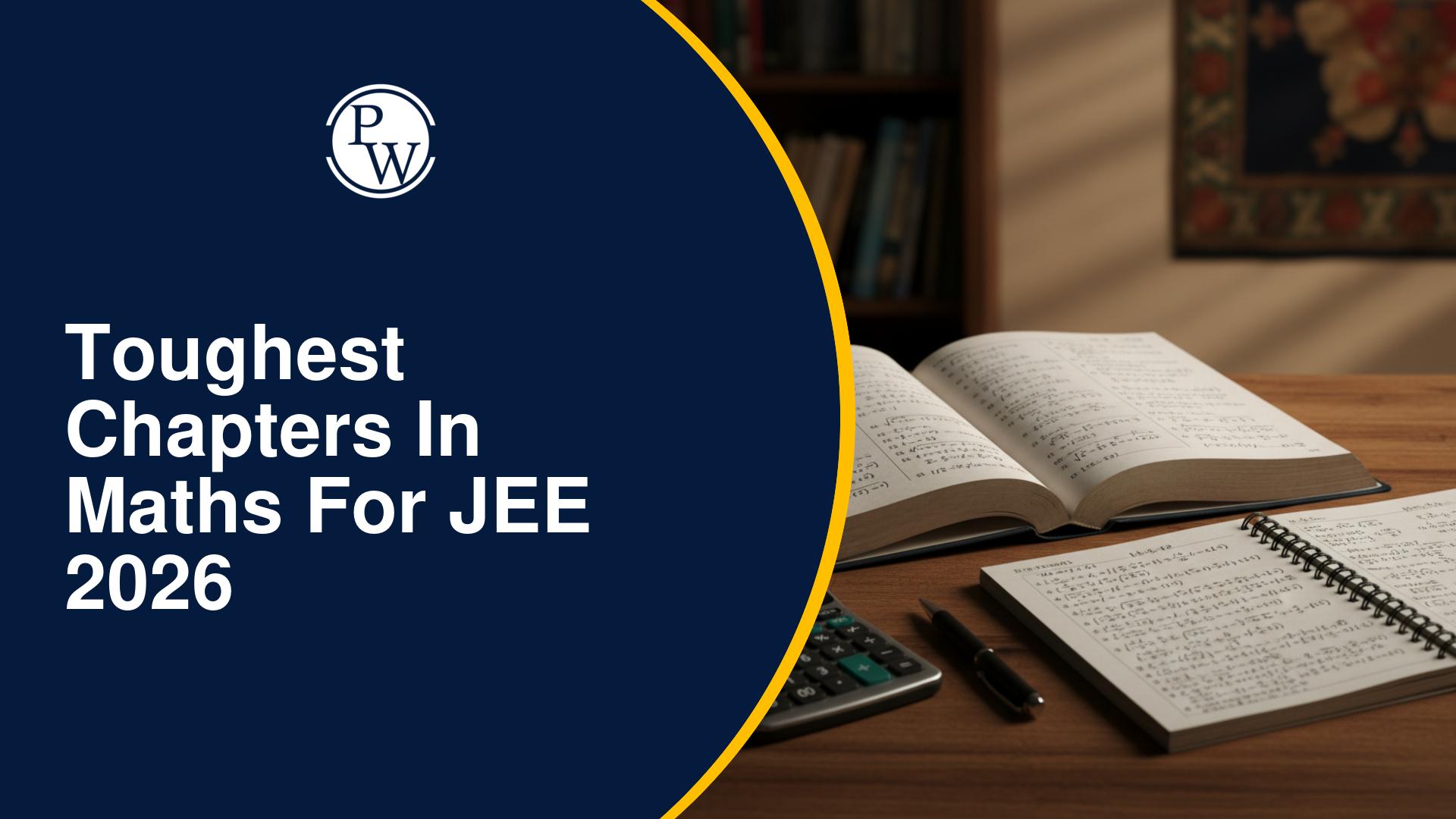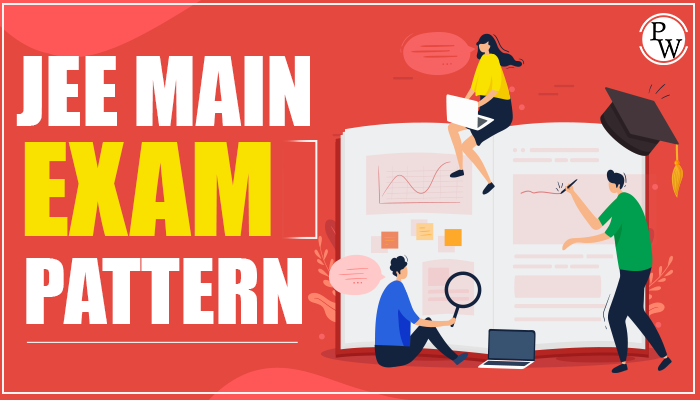
JEE Main 2025 Session 2 April 7 Exam Analysis : The JEE Main 2025 Session 2 exam for shift 1 is over. Like earlier days, today's exam will also be held in two shifts — the morning shift over, and the second shift will begin at 3 PM.
students can check the JEE Main 2025 Session 2 April 7 Exam Analysis for shift 1 below. This analysis is based on the first reactions and feedback from students who appeared in today’s paper. It will help other applicants understand the paper’s difficulty level, types of questions asked, and topics covered.
JEE Main 2025 April 7 Exam Analysis For Shift 1 and 2
The JEE Main 2025 April 7 exam analysis is helpful for students who appeared today as well as those who will take the exam tomorrow. It gives an idea about the overall difficulty level, important topics, and types of questions asked. This helps in last-minute revision and planning.
Today’s exam is being held in two shifts: the first from 9 AM to 12 PM and the second from 3 PM to 6 PM. Tomorrow, on April 8th, the exam will be conducted in only one shift, which is from 3 PM to 6 PM. Students are advised to bookmark this page to stay updated with the complete JEE Main 2025 Session 2 Exam Analysis for April 7 Shift 1 and 2 once the exam is over.
JEE Main 2025 April 7 Shift 1 Paper Discussion LIVE
Shift 1 exam of JEE Main 2025 held on April 7 is now over, and PW’s JEE faculty is releasing the live paper discussion at 2 PM. In this live session, students can check the types of questions asked, important chapters covered, and correct answers. The discussion is now streaming on the Lakshya JEE YouTube channel. The direct link to watch the full session is provided below for easy access.
JEE Main 2025 April 7 Shift 2 Paper Discussion LIVE
Once the Shift 2 exam ends today, students can watch the complete paper discussion live with PW’s JEE faculty. The session is going to explain the questions asked, solutions, and subject-wise analysis to help applicants understand their performance better. This discussion will go live on the Lakshya JEE YouTube channel. For the convenience of interested applicants, the direct link is outlined below.
JEE Main 2025 Session 2 April 7 Shift 1 Exam Analysis Out
first shift of JEE Main 2025 on April 7 started at 9 AM and got over at 12 PM. After the exam, students shared their feedback and reactions, and based on that, the full paper analysis is now available. This analysis can be helpful for students who will appear in the upcoming shifts, as it gives an idea about the level of questions and important topics asked. As per student responses, the overall JEE Main 2025 Session 2 April 7 Shift 1 Exam was of a moderate level.
-
Physics was easy to moderate. Most questions were based on basic concepts. Important topics included Ray Optics, Modern Physics, Current Electricity, Work and Energy, Units and Dimensions, Rotations, and Friction.
-
Chemistry was tough and lengthy. There were around eight questions from Physical Chemistry. Other topics included Biomolecules, Coordination Compounds, Mole Concept, Periodic Table, and Chemical Equilibrium.
-
Mathematics was lengthy and involved mixed concepts. As per the students feedback, around 3–4 questions from Vectors and 3D, 2 questions from Conic Sections (Hyperbola and Parabola), and a few questions from Straight Lines, Circles, Determinants, Integration, and Sequence & Series. The section needed more time to solve and tested understanding of multiple concepts together.
As per the students who appeared in the April 7 Shift 1 exam, the overall paper felt more difficult than the earlier shifts of the April session. Many questions were lengthy and involved a mix of concepts, especially in Mathematics and Chemistry. This made time management a bit tricky. Students appearing in the next shifts should stay calm, focus on revising important topics, and be prepared for slightly tricky and time-taking questions.
JEE Main 2025 Session 2 April 7 Shift 2 Exam Analysis Out
Second shift of the JEE Main 2025 exam on April 7 was held from 3 PM to 6 PM. According to students who attempted the paper, the overall difficulty level was moderate.
-
Physics was easy to moderate and had more formula-based questions. Topics with higher weightage included Electrostatics, Flux, Modern Physics, and Projectile Motion. Most students found this section manageable.
-
Mathematics was moderate but lengthy, which made time management very important. Some of the major topics asked were Differential Equations, Area under the Curve, Quadratic Equations, Maxima and Minima, Conics, and Location of Roots.
-
Chemistry was moderate to easy. There were five questions from Organic Chemistry, along with equal weightage from Physical and Inorganic Chemistry. Many questions were in the form of statements, testing conceptual clarity.
This analysis is based on feedback from students and mentors to help others understand the nature of the paper, subject-wise difficulty, and types of questions asked.
JEE Main 2025 Session 2 April 7 Exam Analysis: Subject-Wise Overview of Both Shifts
The JEE Main 2025 April 7 exam was held in two shifts. Based on feedback shared by students and mentors, both shifts had papers of moderate difficulty, with a few variations in subject-wise levels. Find the detailed subject-wise JEE Main 2025 Session 2 April 7 Exam Analysis that highlights the important topics and difficulty levels from both shifts combined.
JEE Main 2025 April 7 Physics Analysis: Easy to Moderate
In both shifts, Physics was found to be relatively easier compared to the other two subjects. Most questions were formula-based and directly from NCERT topics. Students who had revised key formulas and practiced numericals could attempt this section with ease.
Important Topics from Shift 1 and Shift 2:
-
Modern Physics
-
Ray Optics
-
Current Electricity
-
Magnetic Effect of Current
-
Electrostatics
-
Projectile Motion
-
Work, Energy & Power
-
Friction
-
Rotational Motion
-
Flux
-
Units and Dimensions
JEE Main 2025 April 7 Chemistry Analysis: Varies from Shift to Shift
Chemistry had mixed reviews across shifts. Shift 1 students found it tough and lengthy, especially Physical Chemistry, while Shift 2 students found it moderate to easy, with many questions directly from NCERT.
Important Topics from Both Shifts:
-
Organic Chemistry: Five questions in Shift 2, especially from Reaction Mechanisms
-
Physical Chemistry: High weightage (Mole Concept, Chemical Equilibrium, Thermodynamics)
-
Inorganic Chemistry: Periodic Table, Coordination Compounds
-
Other topics: Biomolecules, Statement-based questions
JEE Main 2025 April 7 Mathematics Analysis: Moderate but Lengthy
Mathematics was lengthy in both shifts, making time management important. Questions were conceptually moderate but required more time to solve. Shift 1 included many mixed-concept questions, while Shift 2 had slightly more weightage on standard topics.
High-Weightage Key Topics from Shift 1 and Shift 2:
-
Calculus: Integration, Differential Equations, Area Under Curve, Maxima & Minima
-
Algebra: Matrices, Determinants, Quadratic Equations, Sequence and Series
-
Coordinate Geometry: Parabola, Circles, Straight Lines, Conic Sections
-
Vectors and 3D Geometry
-
Trigonometry: Basic concepts appeared in a few questions.
Last-Minute Tips for Students Appearing in JEE Main 2025 (April 8)
Applicants who have their JEE Main 2025 exams on April 8th must be feeling nervous. However, these last-minute tips can help them stay calm and do well in their final attempt.
-
Avoid starting any new chapters now. Focus on important formulas, reactions, and theorems that were asked in the previous shifts.
-
Giving one JEE mock test with a timer can help applicants check their speed and plan better for the real exam.
-
Looking at past mistakes from mock tests or old papers can help in understanding what not to repeat during the upcoming shifts.
-
Applicants must pack their admit card, pens, pencils, and other items a day before the exam. This saves time and avoids any last-minute worry.
-
Taking small breaks while revising can help the mind stay fresh. Applicants are advised to take deep breaths or stretch lightly whenever they feeL anxious.
-
Before the exam, students should think about how much time they will give to Physics, Chemistry, and math. They should also keep 10–15 minutes in the end to check their answers.
-
A good sleep of 6 to 8 hours is very important. A fresh mind works better and helps students think clearly during the exam. These small steps can make a big difference. Applicants are advised to stay confident and give their best in the exam.
For those aiming to appear in future JEE attempts, starting early can be a smart move. Students preparing for JEE 2026 and 2027 can begin their journey with the PW Power Batch, which is made to provide a personalized coaching experience.
With regular classes, chapter-wise practice, mock tests, and mentor support, this batch allows students to prepare step by step and at their own pace. Whether in Class 11 or 12, joining the Power Batch early can help students move forward with better clarity and confidence.
JEE Main 2025 Session 2 April 7 Exam Analysis FAQs
Q.1. Where to find JEE Main 2025 April 7 exam analysis?
Q2. Is the JEE Main 2025 April 7 exam going to be tougher than the previous ones?
Q3. Is the Mathematics section going to be hard in the JEE Main 2025 Session 2 on April 7?
Q4. Which subject is going to be the toughest in the JEE Main April 7, 2025 exam?










